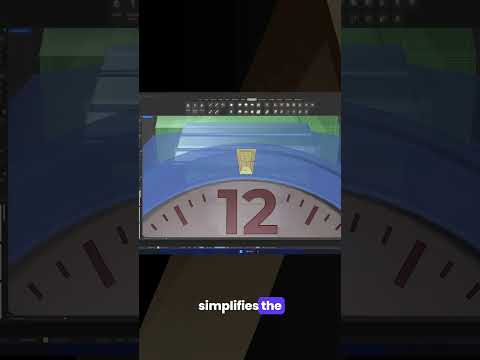Your Cart is Empty
Customer Testimonials
-
"Great customer service. The folks at Novedge were super helpful in navigating a somewhat complicated order including software upgrades and serial numbers in various stages of inactivity. They were friendly and helpful throughout the process.."
Ruben Ruckmark
"Quick & very helpful. We have been using Novedge for years and are very happy with their quick service when we need to make a purchase and excellent support resolving any issues."
Will Woodson
"Scott is the best. He reminds me about subscriptions dates, guides me in the correct direction for updates. He always responds promptly to me. He is literally the reason I continue to work with Novedge and will do so in the future."
Edward Mchugh
"Calvin Lok is “the man”. After my purchase of Sketchup 2021, he called me and provided step-by-step instructions to ease me through difficulties I was having with the setup of my new software."
Mike Borzage
Exploring Quantum Computing's Transformative Potential in Design Software Applications
August 09, 2024 3 min read


Introduction to Quantum Computing in Design Software
Quantum computing represents a significant leap forward in computational capabilities, fundamentally differing from classical computing. By leveraging the principles of quantum mechanics, such as superposition and entanglement, quantum computers can process vast amounts of data simultaneously, offering an exponential increase in computational power.
For the realm of design software, **quantum computing** holds tremendous potential. It promises to dramatically enhance our ability to solve complex design problems that are currently beyond the reach of classical computers. This advancement could lead to revolutionary changes in various design-related fields, from architecture to product manufacturing.
Enhancing Computational Power and Efficiency
One of the most exciting aspects of quantum computing is its ability to execute **quantum algorithms** that can solve problems much more efficiently than classical algorithms. For instance, Shor's algorithm can factorize large numbers exponentially faster than the best-known classical algorithms, which has profound implications for cryptography.
In the context of design software, quantum algorithms could solve optimization and simulation problems more effectively. **Grover's algorithm**, which provides a quadratic speedup for unsorted database searches, could be particularly useful for design applications requiring extensive data analysis.
The potential speed improvements offered by quantum computing are substantial. Complex design computations, such as those found in **Computer-Aided Design (CAD)**, simulation, and optimization, could be completed in a fraction of the time currently required. This increased efficiency could lead to more innovative designs and faster time-to-market for new products.
- Enhanced CAD modeling through faster algorithmic processing
- Improved simulation accuracy and speed
- Optimization of design parameters with unprecedented efficiency
Real-World Applications and Potential Use Cases
Quantum computing's impact on design software extends to various real-world applications. In **architecture and construction**, quantum algorithms can optimize structural design, ensuring buildings are both safe and cost-effective. Enhanced simulations can lead to better energy efficiency, reducing the environmental impact of new constructions.
In **product design and manufacturing**, quantum simulations can advance material science by predicting the properties of new materials with high precision. This can lead to stronger, lighter, and more durable materials. Additionally, quantum computing can optimize supply chains and manufacturing processes, reducing costs and improving efficiency.
- Optimized structural design in architecture
- Enhanced energy efficiency simulations
- Advanced material science through quantum simulations
- Optimized supply chains in manufacturing
For **urban planning and infrastructure**, quantum computing can handle the complexity of large-scale urban modeling, allowing for better planning and management of cities. Real-time adaptive planning can enhance disaster response simulations, ensuring quicker and more effective responses to emergencies.
Challenges and Future Directions
Despite its potential, quantum computing faces several technological barriers. Current quantum hardware is still in its infancy, with issues related to **scalability** and **error correction** posing significant challenges. Additionally, developing quantum-compatible design tools requires substantial research and innovation.
Integration with existing software is another major hurdle. Bridging the gap between classical and quantum systems involves creating hybrid solutions that can leverage the strengths of both computing paradigms. This will require collaboration between quantum computing experts and design software developers.
Looking ahead, the future prospects for quantum computing in design software are promising. Continued research and development will likely overcome current limitations, leading to practical applications that can transform the industry. The **long-term impact** on the design software industry could be profound, enabling designers to create more innovative and efficient solutions than ever before.
Also in Design News

Design Software History: The Evolution of 3D Printing in Aerospace: From Prototyping to Production
November 27, 2024 7 min read
Read More
Cinema 4D Tip: Optimizing Workflow with Team Render in Cinema 4D
November 27, 2024 2 min read
Read MoreSubscribe
Sign up to get the latest on sales, new releases and more …



